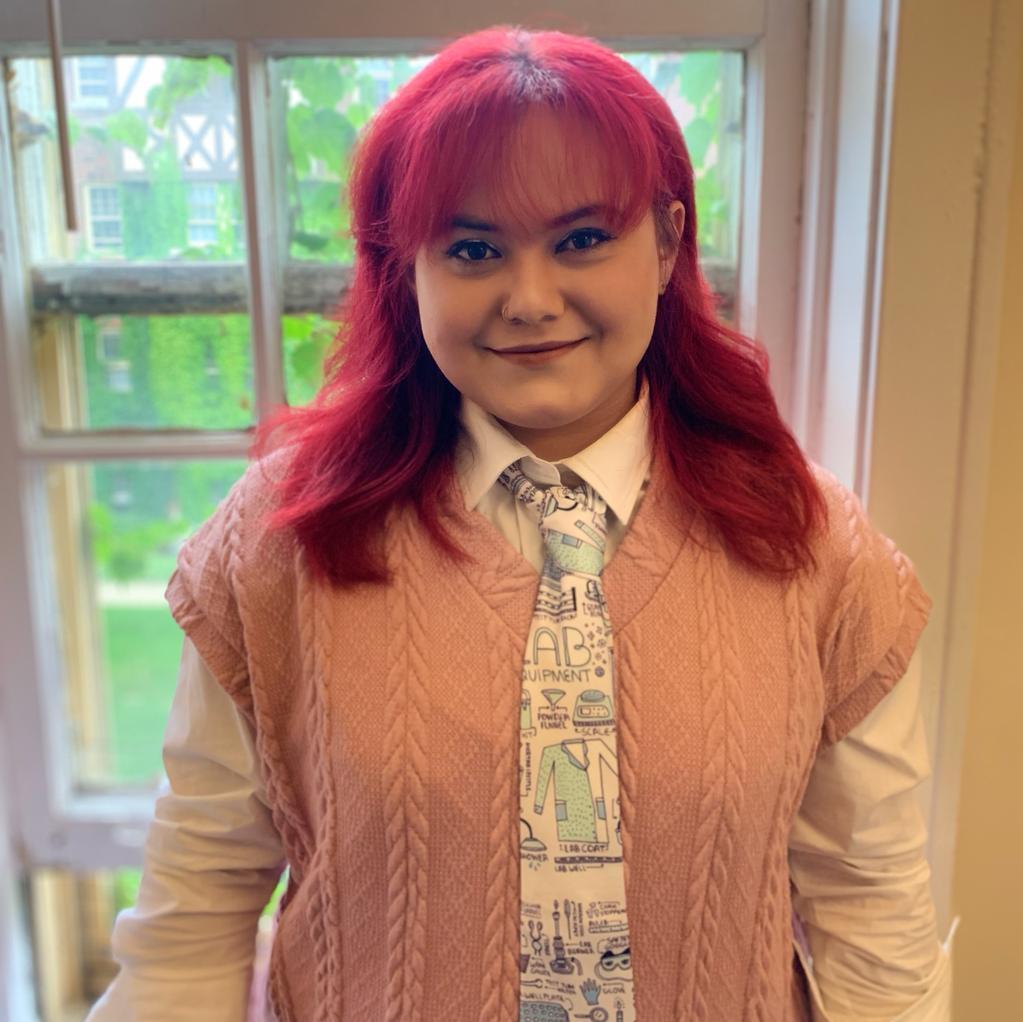CRS Scientist Spotlight on Ilka Lorenzo
You don't truly know where your passions lie until you've explored multiple areas.
Ilka Lorenzo
PhD candidate, Wignall Lab
Ilka Lorenzo is a PhD candidate in Dr. Sadie Wignall's lab. She is also a CRS T32 trainee. Ilka's research focuses on understanding acentrosomal spindle stability in mammalian oocytes during Metaphase II.

Thesis mentor: Sadie Wignall, PhD
Thesis title: "Revealing mechanisms regulating acentrosomal spindle assembly and stability in mammalian oocytes."
What brought you to join the CRS community and what is your current position?
I am currently a PhD student at the Wignall Laboratory. My scientific interest in female reproduction has been influenced by my Puerto Rican culture. The history of reproductive research in Puerto Rico has been a tragic one and there is a lot of mistrust and taboos in reproductive health on the island. The stories I listen growing up about the illegal trials of contraceptives in Puerto Rican women is something that had a great impact in my life.
I knew I wanted to be part of a university with a reproduction center to do my PhD. In fact, I chose Northwestern because of the Center for Reproductive Sciences. I was fascinated by the multiple laboratory research focuses that the CRS-NU faculty had to offer.
Could you describe your research?
In the Wignall lab we study oocyte acentrosomal spindle assembly and stability. All cells have a machinery known as the spindle that helps chromosomal segregation during cell division. Somatic cells and sperm spindles relay on structures called centrosomes that support the spindle assembly, stability and ensure proper chromosomal segregation. But oocytes meiosis is exceptional! Most species manage to undergo oocyte meiosis without the help of centrosomes!
My personal interest is understanding acentrosomal spindle stability in mammalian oocytes during Metaphase II. In the field we don’t understand what are the mechanisms that help the spindle to stabilize, but previous research has shown that mammalian oocytes are particularly prone to unstable spindles during Metaphase II. I am currently studying multiple motor proteins and their function in mammalian spindle stabilization. Understanding how acentrosomal spindles stabilize during the meiotic arrest between Metaphase II and Anaphase II is an important area in the field. If we can figure out mechanisms controlling their stability, we could make improvements in techniques like in vitro maturation.
What aspect(s) of CRS do you find most valuable?
CRS is a very collaborative community. It's amazing how I can just reach out to peers or faculty to get a fresh perspective on my data or a helping hand with improving my protocols. There's always someone willing to help. As someone just starting out in the scientific world, the nurturing environment at CRS is something I truly appreciate.
What has been the most valuable aspect to your training as a reproductive scientist?
The most valuable aspect of my training as a reproductive scientist has been understanding the incredible versatility the field offers. As a reproductive scientist I have been able to explore a diverse range of subjects, from animal physiology to human reproductive health and justice. All these subjects are important to me as a person, and I love reproduction because it allows me to expand in all these passions.
What is one piece of advice you would give to young scientists starting their journey in science?
To not be afraid of exploring your career paths! You don't truly know where your passions lie until you've explored multiple areas. There is no shame in not being sure what you like or want, most of us have no exposure to science and/or research before college or even graduate school.
What do you think will be the next big contribution in the reproductive biology field?
I believe that the key to making significant advances in reproductive biology is to focus on educating people about the importance of research in reproduction. Once we get more people informed and interested, I'm hopeful that our next big step will be in making Assisted Reproductive Technologies better.
What hobbies do you have outside of the lab?
When I'm not busy with work, I enjoy cooking and baking (I especially enjoy eating the treats). My cats (Mr. Ringo and Mr. Arty) are usually hanging around too, probably hoping for us to drop a treat or two for them! I also love to watch horror movies and reality shows.